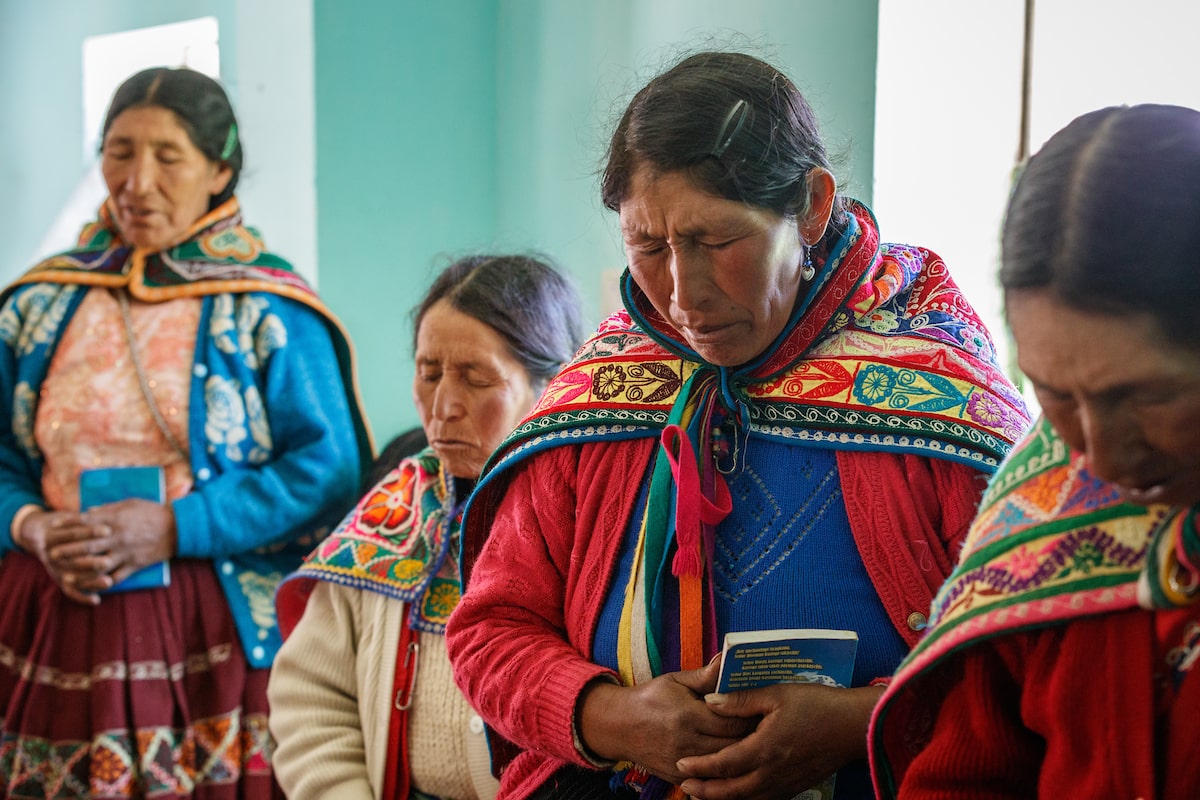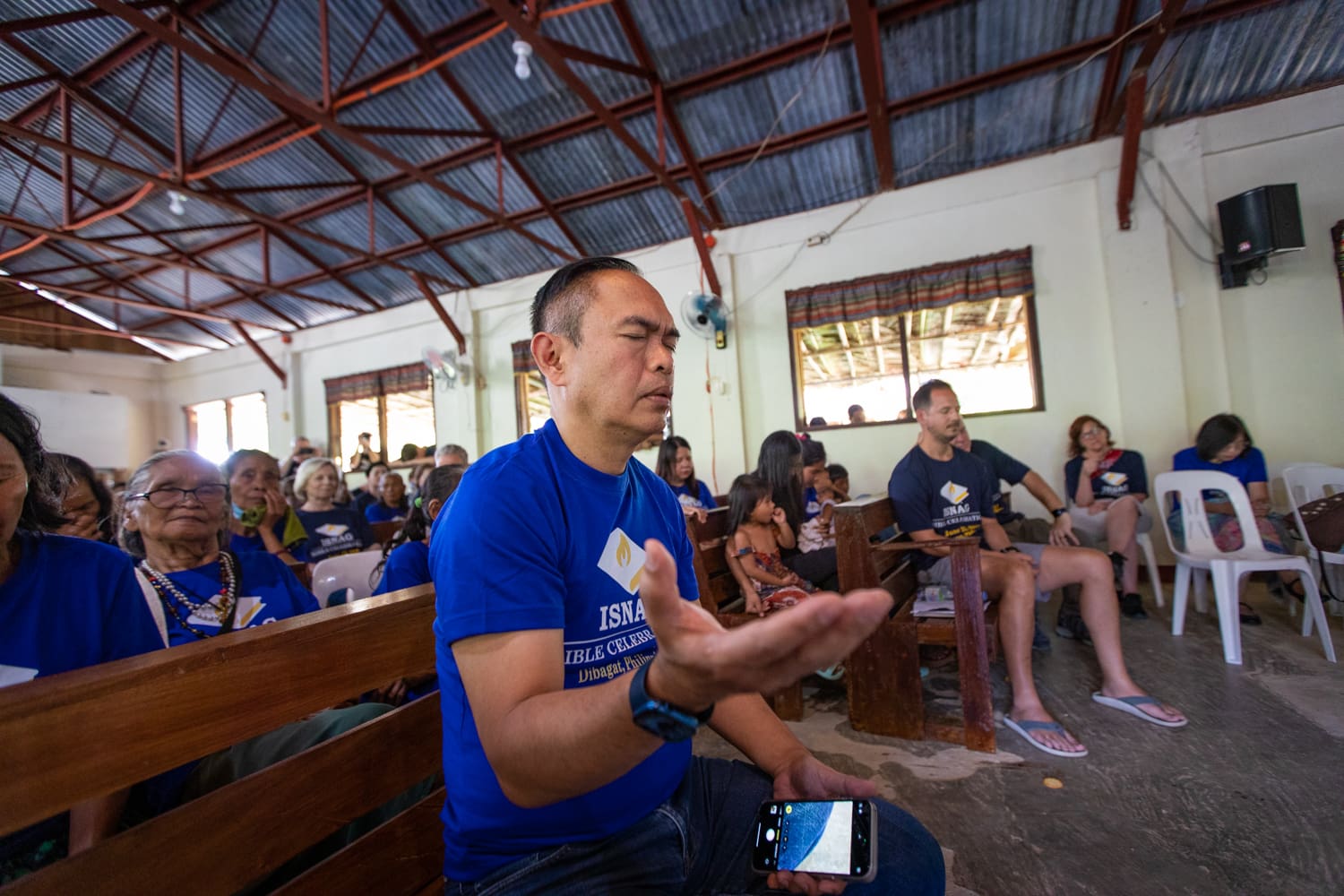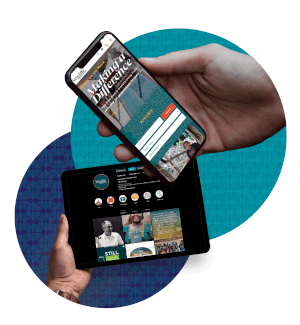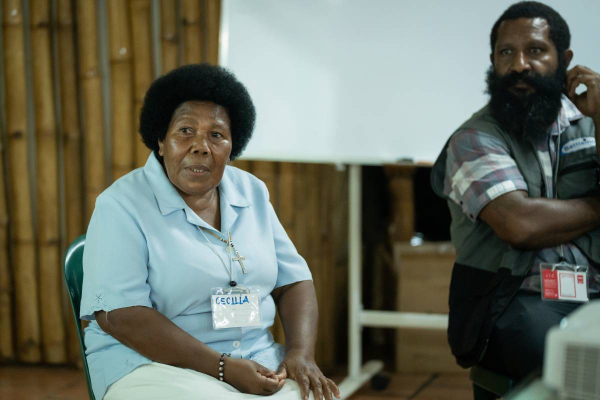Relational Prayer: Talking With God as His Friend

We prayed long, desperate, tearful prayers. We pleaded in faith, knowing God could heal her. But cancer was still wrecking my mom’s body and we knew it wouldn’t be long.
She couldn’t open her eyes, but found the strength to reach for my hand as I stood by her bed. Shifting the baby on my hip, I leaned forward to hear her whispered words: “Don’t be angry at God. I’m trusting in the healer, not the healing.”
My mom knew we’d struggle with God’s choice to allow her life to end much earlier than we thought it should. My parents were missionaries and had built relationships all over the world. Hundreds of people begged for her healing in dozens of languages.
But all of those prayers didn’t seem to make a difference, so I wondered if God was even paying attention.
After my mother’s death, I wrestled with her words until they gradually revealed to me a major gap in my understanding of the purpose of prayer. Until then I didn’t realize that I viewed prayer as transactional.
Focusing on my own desires, I submitted my requests to God and expected that He would either fulfill or deny them.
Prayer As a Transaction
Scripture teaches that God is powerful, able to control the physical world and perform astonishing miracles like making a dry path through the sea (Exodus 14:21) and restoring life to the dead (John 11:43-44).
And He wants us to ask for what we need: “Don’t worry about anything; instead, pray about everything. Tell God what you need, and thank him for all he has done” (Philippians 4:6, NLT).
God has unlimited resources; it’s easy to want Him to be simply our kind benefactor, giving us what we desire. A wealthy woman once confessed to me that she wasn’t sure she had any real friends: “I never really know why people agree to go out to dinner with me. I think they come just because they know I’ll pay.”
What a difficult way to live, surrounded by people who seem to care mostly about what they can gain! This woman’s “friends” entirely missed the greater treasure of knowing her heart.
When we treat prayer like a transaction — an exchange of our pious words for His services — we can justify our anger at Him if He doesn’t seem to follow through on His end of the bargain. We become convinced that He doesn’t hear us or care. And if we do that, we miss out on the greater treasure He’s offering: His friendship.
Prayer As Friendship
Perhaps one of the most common misconceptions about prayer is that it needs to be done a certain way, following a formula with just the right religious words. I’ve heard people say they don’t know how to pray, as if they can somehow mess it up.
Moses argued with God about going back to Egypt (Exodus 3:11-14), Elijah complained to him about feeling alone (1 Kings 19:10) and Mary responded to God with a spontaneous, heartfelt song (Luke 1:46).
David’s prayers weren’t rigid or formulaic either; they were entirely conversational. He bluntly asked God: “Why are the nations so angry? Why do they waste their time with futile plans?” (Psalm 2:1, NLT).
He pleaded with God too, saying: “Lead me in the right path, O Lord, or my enemies will conquer me. Make your way plain for me to follow” (Psalm 5:8, NLT).
And he rejoiced before God too: “Surely your goodness and unfailing love will pursue me all the days of my life, and I will live in the house of the Lord forever” (Psalm 23:6, NLT)
Over the course of a few chapters, David went from expressing frustration with the world to pleading for personal help to talking about God’s faithful love.
But one of David’s most profound prayers is striking in its simplicity: “My heart has heard you say, ‘Come and talk with me.’ And my heart responds, ‘Lord, I am coming’” (Psalm 27:8, NLT).

This is an uncomplicated statement born out of an intimate friendship: “You want to talk with me, and I want to talk with you.”
No pious words were necessary because God knew David, and David knew God. Their relationship was the foundation for the prayers David prayed — even angry ones when he felt ignored: “O Lord, you know all about this. Do not stay silent. Do not abandon me now, O Lord” (Psalm 35:22, NLT).
David felt strong emotions and freely expressed every one of them before God, unafraid of losing his heavenly Friend’s love. And as he vulnerably opened his heart to God, David also experienced the depths of God’s own tender, faithful heart.
Instead of trying to manipulate God with our prayers, we can talk with Him in the same unvarnished way we’d talk with our closest friends, knowing we don’t have to pretend or perform to gain His attention.
And as we pray, we have Scripture to anchor and remind us that God hears us, knows us and wants us to talk to Him like His friend. Having the Bible in a language and format that you truly understand is critical to being able to have a robust, rich prayer life the way God intended.
The truth is that God hears us, He cares and He’s big enough to handle even our ugliest attempts at communication. There are times I’ve prayed pretty prayers and meant every word, but there are also more times than I can count that I’ve called God a jerk and thrown a toddler tantrum, complete with hiccups and snot.
And when I’m done, He’s still there. Because prayer is about building a relationship with God rather than getting what we want, He welcomes all of our feelings, thoughts and doubts. In return, He offers us his steady, loving presence.
I know now that as I spend unguarded time with Him, my restless emotions and questions will find stillness in this simple truth: He is with me, and I can trust Him.
God wants us to come to Him and lay everything — our dreams, desires, struggles, anger, temptation, fear, confusion and heartache — at His feet, not just so we’ll feel known by Him but so we’ll learn His heart and develop the deepest, most faithful friendship we’ve ever known.
Friendship with God empowers Christians to live with a purpose. Scriptures on prayer, like those discussed above, foster someone’s relationship with God. And yet, millions of people around the world still don’t have the Bible in a language and format that touches their heart.
Prayer empowers people doing the work of Bible translation and prepares the hearts of those receiving Scripture. Relational prayer postures our hearts after God’s own: longing for the day that people from all languages, people groups and nations would worship before His throne! (Revelation 7:9)
Your Turn to Talk With God
God cares about your heart and emotions. As you consider prayer as a tool for building a friendship with God rather than just getting something from Him, ask yourself these questions and then talk honestly with God about your answers:
- Do I believe in the power of prayer?
- When and why do I pray?
- What do I need to talk with God about in an unguarded and open way?
- What would it look like to for me to pray with the goal of intimately knowing God’s heart?
- How can I pray for people who do not have access to Scripture in their language?
- What would happen if I chose to say yes to the opportunity to pray for Bible translation efforts around the world?
Prayer draws us further into a transformational relationship with God. Prayer is powerful and changes our hearts. It can change the world.
How will you respond?
Sign Up for Weekly “God Sightings” Text Messages
Each week, you can receive an update on what God is doing around the world — directly to your phone! Stay informed, inspired and encouraged by the latest news, and join us in praying for God’s name to be made known among the nations through the work of Bible translation.
Text SIGHTINGS to 407-358-0916 to get started.







